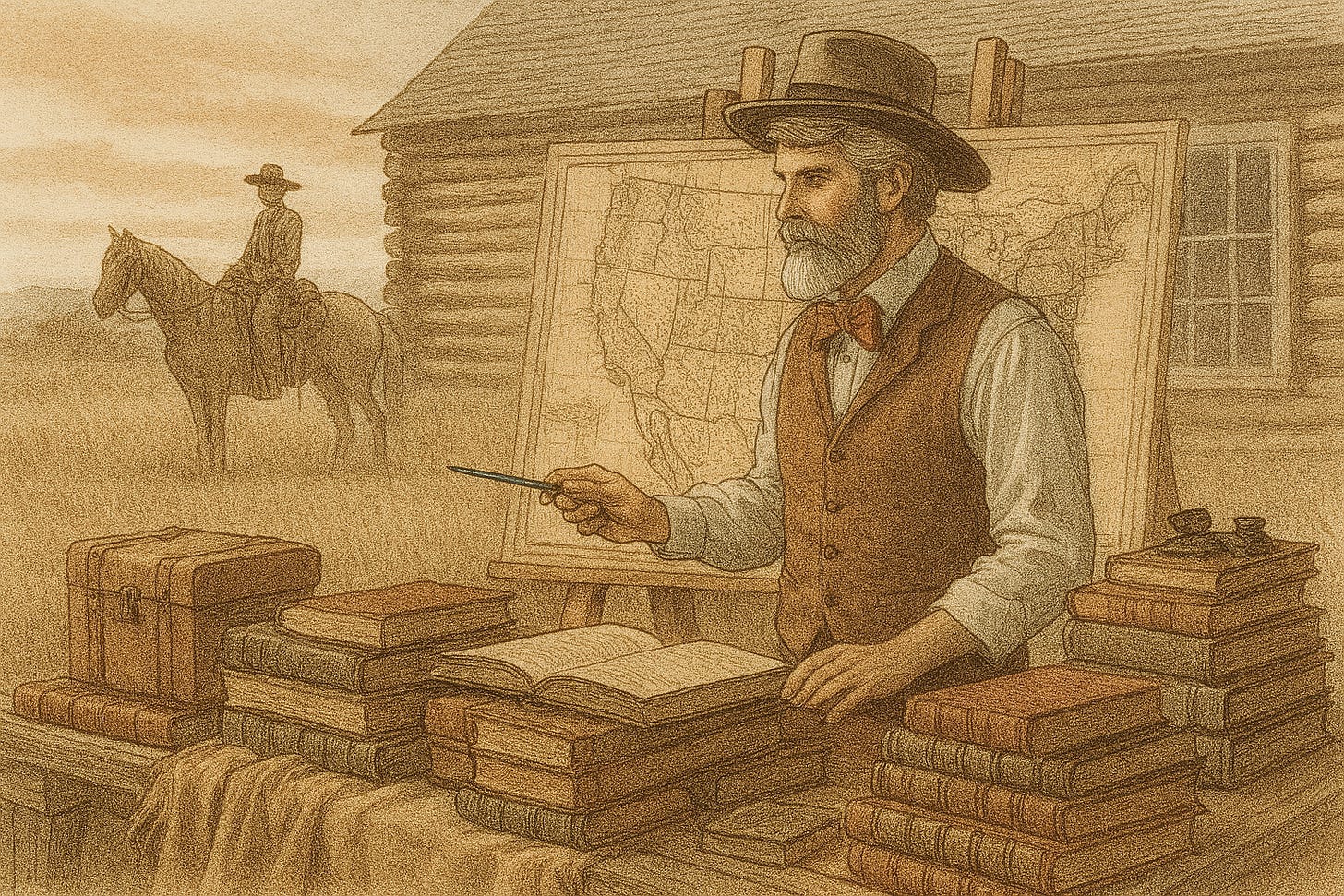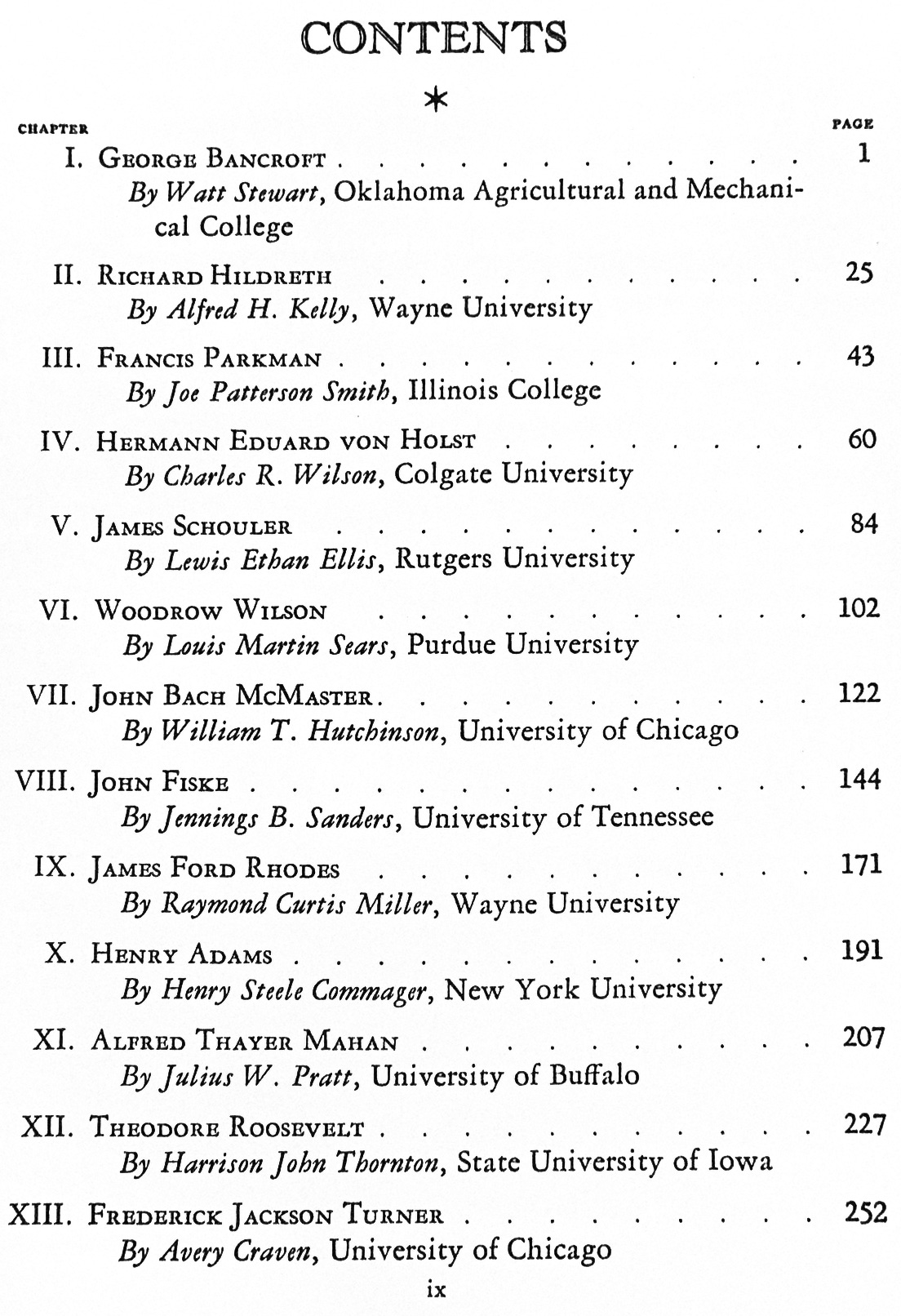Avery Craven, The Turner Theories, and the South
Hello. My Name is Chase. I am a hunter-gatherer (hoarder). Twitter mutuals, family, and friends know I’m a tad touched with the Gentle Madness. A fervent preacher of the physical, the tangible, yet find myself predominantly entwined within my digital library. Picture me akin to Scrooge McDuck, nailing a gainer into a sea of gold coins (I hope Wendy Peffercorn was watching). I’m swimming in PDFs. Basically no-marfan Michael Phelps. It all began with a few files from genealogy research, 600 gigabytes later, I stand as the Heimdall/Fisher King of an archive of “global” repute (sips from chalice).
You must understand, reading brings me joy. But it’s the gathering, Hunting a lone elusive footnote. Five-hundred-page bibliographies on Southern bibliographies. Taps vein. Eyes dilate. Portals swing ajar. Like standing alongside Davidson’s Tall Men, perched on the threshold of the frontier . . . Not really. But, for real. My digital library is legit.
Recently, I read a pdf of the Dictionary of Literary Biography: Volume 17, Twentieth-Century American Historians, edited by Historian and THE John C. Calhoun scholar, Dr. Clyde N. Wilson. The book “contains literary biographies of fifty-nine historical writers” whom they consider the best 20th-century American historians. It’s responsible for several additions to my home library and hundreds to my hard drive.
Avery Craven and Frederick Turner Jackson are two of the 59. I’ve read much more Craven than Turner due to his work in Southern History. According to the Dictionary of Literary Biography, Avery Odelle Craven (1885-1980), an interpreter of the American South, its agricultural soul, and the underpinnings of the Civil War, garnered acclaim for his "revisionist" perspectives. This label, "revisionist," aptly encapsulates Craven, given that his seminal contributions coincided with a crucial evolutionary phase in American historiography.
For a long time, folks thought Craven was from North Carolina, and that's why he seemed to lean towards the South. But that wasn't it. His dad was born there, sure, but they were Quakers. They left the South, as Craven said, "because of slavery and all other Southern values," and ended up in south central Iowa.
Craven got his A.B. in geology in 1908 at Simpson College in Indianola, Iowa, where the only history course he took was in European History. He went to study under Edward Channing at Harvard (also 1 of the 59). He became acquainted with Frederick Jackson Turner while at Harvard, but he didn’t stay there long. Craven said that it was Turner who advised him to transfer to the University of Chicago, the domain of William E. Dodd (yep, another of the 59).
Turner not only shaped Craven’s teaching methods but also instilled in him a zeal for research, the quest to unearth "the hows and whys of things." Yet, it was beneath the tutelage of Dodd and Marcus W. Jernegan at Chicago that Craven's understanding of Southern history truly took root. His dissertation, “Soil Exhaustion as an Historical Factor in Virginia and Maryland, 1608-1860,” which I read for my piece in Moonshine & Magnolias, emerged as a trailblazing work in Southern agricultural history.
That above Jernegan tidbit and Craven’s essay “The Turner Theories and the South” led me to The Marcus W. Jernegan Essays in American Historiography, by his former students at the University of Chicago, edited by William T. Hutchinson (1937). There’s no link to this book because I couldn't find it online. I did buy it, which is the reason for this post. Avery Craven's contribution is on Frederick Jackson Turner, and I’ve transcribed and annotated it for your reading pleasure. You will find it attached below. The Fisher King becomes The Kingfish. Just call me Huey PDF Long.
Just Because
“Historians talk about each other’s work all the time but have a reluctance to record their thoughts concerning colleagues. Hence the entire twentieth century passed by with only a handful of books devoted to the historical profession in the United States. The landmark work was the 1937 publication, The Marcus W. Jernegan Essays in American Historiography, written by former students of their teacher at the University of Chicago and edited by William T. Hutchinson. This festschrift became a kind of Bible for a generation or so of graduate students, who went into their oral examinations with trepidation and a copy of Jernegan nearby.” (Clio's Favorites: Leading Historians of the United States, 1945-2000. University of Missouri Press)
“Professor Jernegan was one of the first to offer a graduate seminar in American historiography. His pupils have shown their appreciation in these informative and documented essays, from 10 to 27 pages in length, concerning 21 American historians whose work is finished, and who were mainly concerned with United States history prior to 1865. Another four studies, including Charles Hirschfeld's "Edward Eggleston, Pioneer in Social History," appear in Historiography and Urbanization; Essays in American History in Honor of W. Stull Holt, edited by Eric F. Goldman (Baltimore, Johns Hopkins Press, 1941. 220 p.)” (A guide to the study of the United States of America, Library of Congress. Link)





